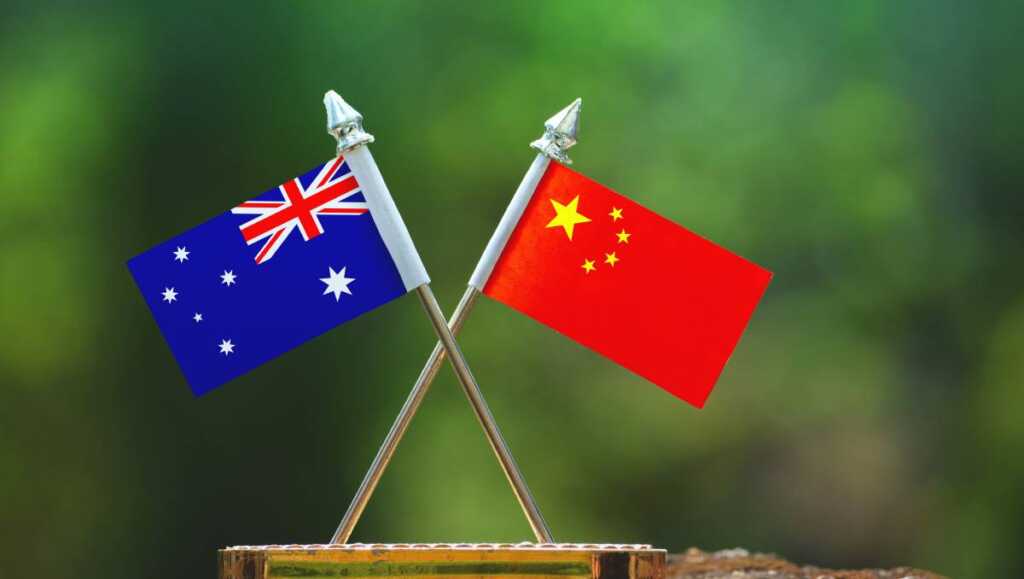Published in the Courier Mail, 20/09/2021
Despite the world being in the grip of an ongoing global pandemic, our greatest challenge is not Covid-19. It’s resolving the China question.
China is the biggest, richest and most powerful country in our region. It is governed by an authoritarian regime that is militarising at great speed and scale, and its economy will soon be the world’s largest.
As it grows in power and stature, China wants to change the world by replacing the rules-based international order with a new system that is less free, less transparent and more prone to the unfettered use of raw power.
When Australia announced a new security partnership with the United States and the United Kingdom last week, dubbed AUKUS, it drew a swift response from the communist power which labelled it “extremely irresponsible” and claimed it “seriously undermines regional peace and stability”.
Elsewhere, the editorial of China’s state-run Global Times called Australia “a running dog of the US”. If Australia were to provoke China, the editorial warned, “China will punish it with no mercy”.
Don’t dismiss these indelicate words as misplaced hyperbole from overly zealous Chinese loyalists. They reflect deeply felt and sincere sentiments on the part of modern China.
A country’s foreign policy is an outward expression of its national identity – its values and way of life, how it sees itself and the world around it. This explains much of China’s growing assertiveness and its aggressive behaviour.
China’s national identity has taken on a new form over recent decades and it comprises two components.
Firstly, as the former ‘Middle Kingdom’ under heaven which possessed the greatest power and most advanced economy on earth up to the 16th century, the Chinese believe their past preordains their destiny.
Secondly, the Chinese believe they were victims of foreign powers during a ‘century of humiliation’ from the first Opium War in 1839 to the end with the Second Sino-Japanese War in 1945 and they are determined to never be humiliated again.
Xi Jinping encapsulates this national identity in his vision of achieving “the Chinese dream of great rejuvenation”; a slogan that rekindles past glories and traumas and places them within an ambitious statement about the future.
The danger with this form of nationalism and, by extension, foreign policy, is that it limits China’s strategic flexibility and leads to acts of aggression.
This explains China’s economic coercion against Australia resulting from our decision to introduce foreign interference laws, secure our the 5G network and call for an independent investigation into Covid-19.
It was therefore inevitable that last week’s announcement of AUKUS and our plan to build nuclear propelled submarines was going to anger China.
Should we have held off in fear of poking the dragon? No.
You don’t capitulate to a bully. You do what’s right – acting in your own interests, consistent with your own values.
The formation of AUKUS sends a powerful message to the world that we three liberal democracies share a common set of liberal values – including freedom and equality – and we believe in a rules-based international order.
AUKUS does not replace other alliances, but complements them.
Only three weeks ago, we celebrated the 70 year anniversary of the ANZUS Treaty and this week the Prime Minister will meet with other members of the Quadrilateral Security Dialogue – the US, Japan and India – in Washington.
The Quad and our relations with South Korea, Vietnam and other countries are becoming increasingly important.
And let’s not forget the Five Eyes alliance – consisting of the US, Britain, Canada, Australia and New Zealand – which is a vitally important network of democracies.
Lastly, Australia’s relationships with Indonesia and other South East Asian nations are crucial, along with our Pacific island neighbours.
The value of these networks lies in their potential for collective action. This includes working together to ensure China’s rise doesn’t go unchecked.
Containing China is not the goal, but constraining its capacity for coercion is; not just political coercion but also economic coercion.
Politics and economics are intertwined everywhere, but in China they are steered by the one hand – the Chinese Communist Party.
While AUKUS has rightly focused people’s minds on issues of national security, as Australia knows only too well, trade is also used by China as a tool of statecraft.
While applying principles of ‘collective security’ and ‘mutual assistance’ is more complicated in agreements on economics than defence, this represents the next big challenge for liberal democracies and like-minded nations.
No matter what the future holds, we must anchor to our own values and always defend our way of life.
As for China, we do not wish for war. With a view to relations one day being renewed, we should seek a constructive relationship based on mutual respect within a stable Indo-Pacific where freedom reigns and the rule of law prevails.
